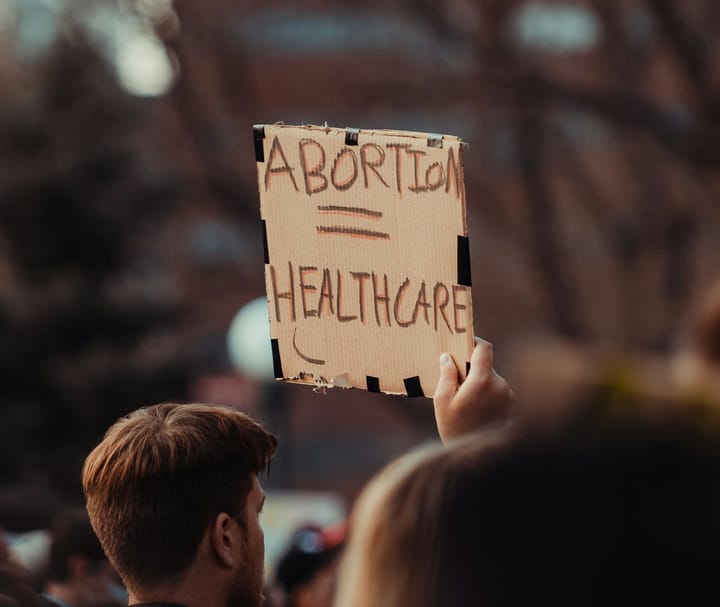The Toll Of An Abortion Ban

Last night on 60 Minutes, the long running news program aired a segment about the grim ramifications of being in a state with a near-total abortion ban. The story, which included the dire warnings of doctors in the state, aired just days after reporting from ProPublica described how two pregnant women died after not receiving adequate medical care.
The first story that ProPublica published was about Josseli Barnica, a 28-year-old mother who was pregnant with her second child when a miscarriage began at seventeen weeks. According to ProPublica, Barnica was forced to wait over 40 hours until the proper medical care (an abortion) could be provided. Barnica developed an infection and died three days later.
ProPublica also spotlighted what happened to an 18-year-old in Texas who was pregnant with her first child: Nevaeh Crain. Over a span of 20 hours she went 3 times to a hospital before she was admitted. Crain was experiencing debilitating pain and bleeding. Even though on her second hospital admission she was diagnosed with sepsis, she was told she was free to go. On her third hospital visit, Crain’s blood pressure dropped dramatically. By the time fetal demise (which must be recorded) was established, it was too late.
EMTALA (also known as the Emergency Medical Treatment and Active Labor Act) is a federal law that requires all medical facilities to provide “stabilizing treatment” before discharging a patient. When the Biden Administration issued a guidance reminding states this would include abortions, Texas Attorney General Ken Paxton sued. In October, the Supreme Court declined to weigh in on an injunction against the federal EMTALA guidance.
Senate Bill 8, which created a near-total abortion ban in Texas, was enacted months before Roe v. Wade was overturned. There are no exceptions for rape or incest, but there is supposed to be one for medical emergencies. But the problem is that those medical emergencies are ill-defined, and any doctor that performs an abortion that is not medically necessary could be sued and face life in prison.
On 60 Minutes, one doctor that was expressly telling viewers about the dangers of abortion bans was Dr. Emily Briggs, who practices family medicine in central Texas. She told CBS correspondent Sharyl Alfonsi that she has heard from colleagues who no longer want to work in a state with an abortion ban. CBS noted that in the past year, the number of OB-GYN’s resident applications in Texas dropped sixteen percent. “This is not the medical care that those of us in medicine signed-up for,” said Briggs.
Over the weekend over 110 OB-GYN’s from around the state wrote to the policymakers and elected officials of Texas urging them to change the current laws. "The nature of the strict abortion ban in Texas does not allow us as medical professionals to do our jobs,” they wrote.
One of the signatories is Dr. Austin Dennard, who was forced to leave the state for an abortion after a devastating diagnosis during a pregnancy. She was a plaintiff in the lawsuit Zurawski v. Texas, which sought to clarify the medical exceptions to the state’s abortion ban that was heard by the Texas Supreme Court (and featured in a documentary from directors Maisie Crow and Abbie Perrault).
Dennard has been a frequent surrogate for the Harris-Walz campaign, as well as for Colin Allred and other Texas candidates. Cruz has repeatedly dodged questions related to abortion on the campaign trail, and at the sole debate did not say whether he supported SB 8, which has no exception for rape or incest.
When he was asked about the death of Josseli Barnica, Cruz called it “heartbreaking” and a “tragedy.” He also claimed that Texas abortion laws do have exceptions to save the life of the mother. Hundreds of doctors in Texas would vehemently disagree.



Comments ()